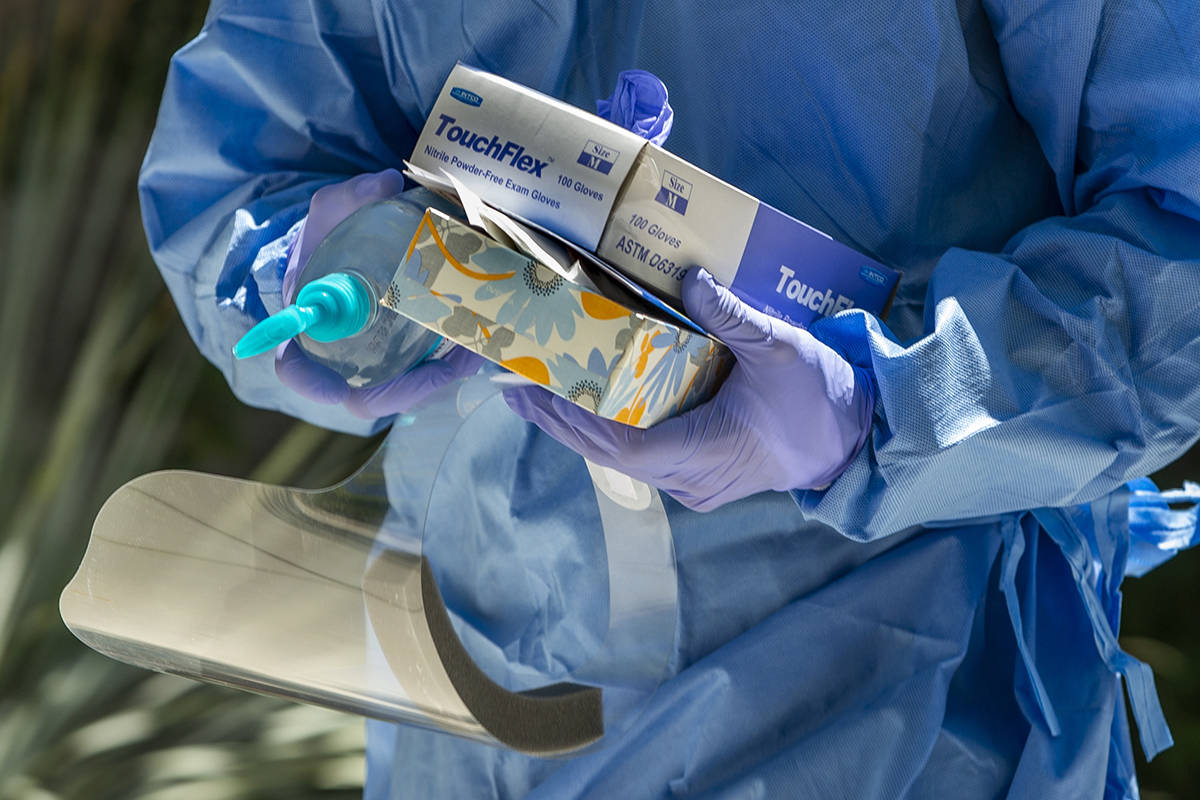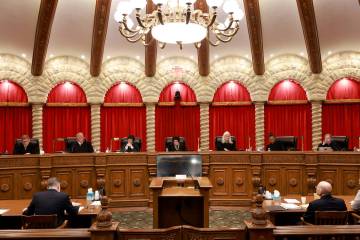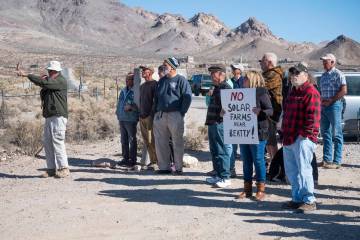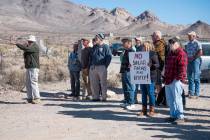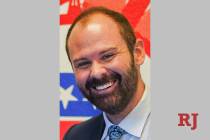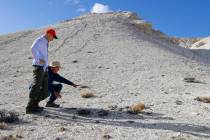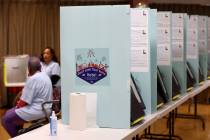State will expand COVID-19 testing, contact tracing
CARSON CITY — Nevada will vastly expand its COVID-19 testing and contact tracing abilities under a framework announced Monday by Gov. Steve Sisolak, an effort funded by federal pandemic response money as well as $96 million from the federal Centers for Disease Control and Prevention.
“This plan marks a major milestone for the State of Nevada, formalizing and expanding our existing efforts to battle COVID-19 as we embrace our new normal,” the governor said in a statement.
The Legislature’s Interim Finance Committee approved acceptance and allocation of the CDC funding Monday afternoon. Additional funds are set to be approved this week by the state Board of Examiners, composed of the governor, attorney general and secretary of state.
Expanded community-based testing and contact tracing are essential components of the state’s pandemic recovery effort. The plan announced by the governor calls for a “comprehensive strategy” for communities to follow that will “provide a bridge to normalization of services and industry in our state.”
Community-based testing is the plan’s cornerstone. The state will provide logistical support for local and tribal communities for sample collection, personal protective equipment, and additional resources for antibody collection. The effort will be guided by the Division of Emergency Management.
The plan will also provide for expanded lab capacity for testing and analysis statewide. The governor named Mark Pandori, director of the state public health lab and an associate professor of pathology and laboratory medicine at the University of Nevada, Reno School of Medicine, to serve as the state’s chief of testing.
The governor also approved a new policy authorizing any medical provider or trained personnel at a medically supervised COVID-19 testing site to collect test samples — an effort to streamline how community-based testing is administered.
Jobs in contact tracing
As for contact tracing, the state will obtain an off-the-shelf system developed by Salesforce that will be customized for Nevada by Deloitte. The state will also hire and train 250 contact tracers through Deloitte.
The state Department of Health and Human Services also will look to hire from among state workers who might lose jobs due to expected state spending cuts and also use funds to address deficiencies in the public health care system that the coronavirus pandemic has highlighted.
“COVID-19 has shown where we have opportunity for improvement in the public health system,” said Julia Peek, deputy administrator for the state Division of Public and Behavioral Health, speaking to the Interim Finance Committee Monday as she reviewed how the $96 million from the CDC would be spent.
Peek told the committee that the department is currently processing more lab reports in a single day than it has over the course of an entire year for reporting involving other communicable diseases. Reports are still being faxed to other jurisdictions instead of being transmitted electronically. The National Guard, activated by the governor, has been deployed to support testing, lab operations and tracing.
“So just the quantity of that information flowing through our system shows that our IT system needs a great deal of investment to improve,” Peek said. “And that is not cheap, and that is allowable in something like this.”
Help from higher ed
The governor’s office said the Nevada System of Higher Education is developing a “workforce of students, faculty, staff, and volunteers” to support health agencies at all levels of government on case investigation and contact tracing needs, both for COVID-19 and for future communicable disease investigation.
Besides the funding for testing and tracking, the legislative finance committee approved a $2.5 million emergency transfer of funds within the Department of Employment, Training and Rehabilitation to stand up a new phone system urgently needed to handle the unprecedented call volume for unemployment claims processing.
Director Heather Korbulic told the committee the existing system is “very fragile, barely operational with many of our components at their end of life,” adding that it “could potentially break at any given moment.”
The new cloud-based system, already being deployed in new call centers created to handle the unemployment crisis, also will permit workers to handle calls remotely rather than from a central location where the risk of contagion is higher.
Korbulic said the new system could be fully deployed department-wide in 30 to 60 days.
Contact Capital Bureau reporter Bill Dentzer at bdentzer@reviewjournal.com. Follow @DentzerNews on Twitter.



